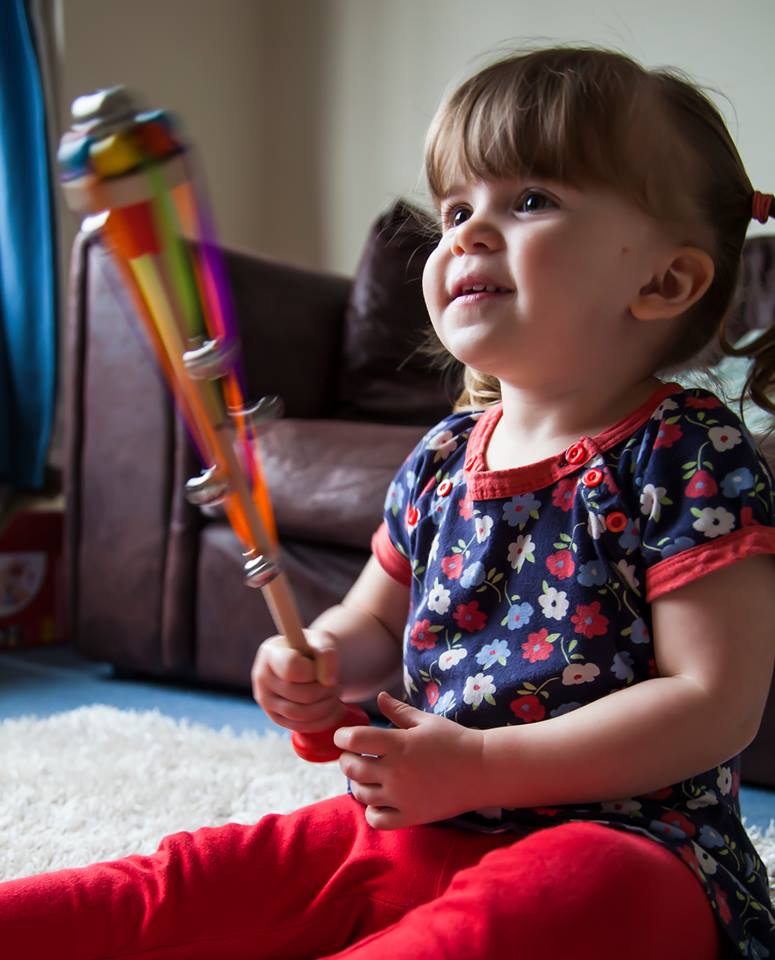
Fun and learning with sensory play!
My name is Katie, I'm 28, a primary school teacher and I have a 2 year old daughter. I first started sensory play with Daisy when she was 4 months old and she absolutely loved it! She much preferred a tray of coloured spaghetti to her regular toys! Around June 2014 whilst making up different sensory bins I wondered whether anyone would like to buy ready made treasure baskets or sensory bins. I started a Facebook group 'Sensory Sensations' and pretty soon I had orders from local mums, nurseries and childminders... fast forward to February of this year and I decided to branch out into Sensory Sensations weekly toddler classes offering sensory & messy play activities. It's a lot of fun and we've had a lot of mums join us. After our second baby is born (due April) we will be offering weekend classes and hopefully will continue to grow.
From birth, babies explore the world around them using their five senses: touch, sight, hearing, taste and smell. In recent years there is a decline in Sensory Play as the TV, computer games and battery operated toys are becoming more popular.
Sensory play has long been a favourite in our house since my daughter Daisy was 4 months old. She's now 2 years old and we've enjoyed lots of creative, messy and sensory play which has really helped her early development. Sensory play is all about exploring through senses and experimenting in new experiences. It's fun play with lots of learning too! I've put together a list of the benefits of sensory play and how it will help your child to develop:
 Exploring textures on the Bruno Activity Cube[/caption]
Exploring textures on the Bruno Activity Cube[/caption]
 Having musical fun with the Bell Tree[/caption]
Having musical fun with the Bell Tree[/caption]
 Ice Cream Sandmoulds are fun for the sand tray[/caption]
Ice Cream Sandmoulds are fun for the sand tray[/caption]
 Problem solving with the Animal Shape Lorry[/caption]
Problem solving with the Animal Shape Lorry[/caption]
 Developing rhythm with the colourful Animal Maracas[/caption]
Developing rhythm with the colourful Animal Maracas[/caption]
 Creating shapes with the Sandmould Assortment[/caption]
Creating shapes with the Sandmould Assortment[/caption]
- Independent play
 Exploring textures on the Bruno Activity Cube[/caption]
Exploring textures on the Bruno Activity Cube[/caption]
- Wide age range
- Developing imagination
 Having musical fun with the Bell Tree[/caption]
Having musical fun with the Bell Tree[/caption]
- Building fine motor skills
- Enhancing memory
 Ice Cream Sandmoulds are fun for the sand tray[/caption]
Ice Cream Sandmoulds are fun for the sand tray[/caption]
- Learning new vocabulary
- Problem solving/Reasoning skills
 Problem solving with the Animal Shape Lorry[/caption]
Problem solving with the Animal Shape Lorry[/caption]
- Learning from real life experiences
 Developing rhythm with the colourful Animal Maracas[/caption]
Developing rhythm with the colourful Animal Maracas[/caption]
- Sharing and turn taking
 Creating shapes with the Sandmould Assortment[/caption]
Creating shapes with the Sandmould Assortment[/caption]
- Calming effect
